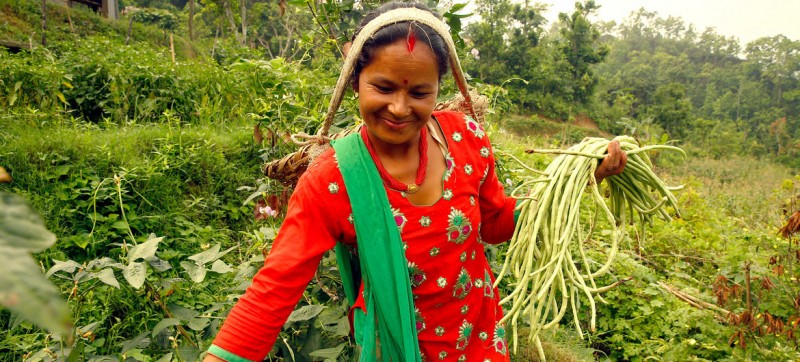Rural women form a large proportion of the agricultural labour force in Nepal. Although rural women and girls have an essential role in food systems, they still do not have equal power with men, therefore earn less, and experience higher levels of food insecurity, according to UN Women, the agency supporting countries to reach gender equality. On the International Day of Rural Women, observed this Friday, UN Women is calling for an end to this paradox by dismantling the unequal power relationship between women and men, and confronting gender norms.
Despite ensuring the world can be fed, many rural women suffer from discrimination, systemic racism & structural poverty.
We must invest in rural women so they can access the healthcare, social protection & information services they need. pic.twitter.com/ATJvivT6AV
— António Guterres (@antonioguterres) October 15, 2021
Last to eat
Food systems worldwide depend on the labour of rural women. They raise and process crops, and prepare and distribute their products, ensuring that their families and communities are nourished.
However, these same women often have less access to food, and suffer higher risk of hunger, malnutrition and food insecurity, when compared with men.
Discriminatory gender norms often see them eating last, or least, in the household, where they are also responsible for the greater share of unpaid caregiving and domestic work.
The theme for the International Day, Rural Women Cultivating Good Food for All, shines a spotlight on the critical role they play in feeding the world.
UN Women said although the planet is capable of providing enough good food for everyone, more and more people are finding it harder to get enough to eat, especially in the face of escalating climate and environmental crises and the ongoing COVID-19 pandemic.
Transforming food systems
Last year, the number of people who did not have access to adequate food rose by nearly 20 per cent, reaching more than 2.3 billion. Most of those affected were rural women and girls.
UN Secretary-General António Guterres has called for transforming food systems in his message for World Food Day, observed annually on 16 October.
UN Women has published a Feminist Plan for Sustainability and Social Justice, which includes focus on rebuilding the broken global food system and supporting diverse and healthy crop production.
An alternative approach
The new plan puts gender equality, social justice, and sustainability at the centre of COVID-19 recovery and global efforts to “build back better” in the aftermath of the crisis.
“This International Day of Rural Women offers us a renewed opportunity to commit to a different way of organizing our world, to build on the vision of the Feminist Plan and on the outcomes and multi-stakeholder commitments of the recent United Nations Food System Summit, so that rural women benefit equally from their productivity, with good food enjoyed by all,” the agency said in a statement.
The Feminist Plan calls for strengthened partnerships between governments and civil society to scale up “gender-responsive agroecology”, described as an alternative to industrial agriculture.
This approach to farming has proven benefits for women small-scale producers. It also supports food security and protects biodiversity and ecosystems.




Comments are closed.